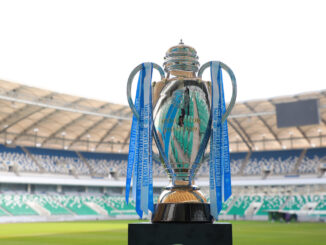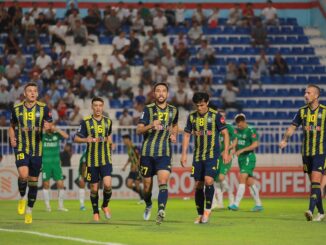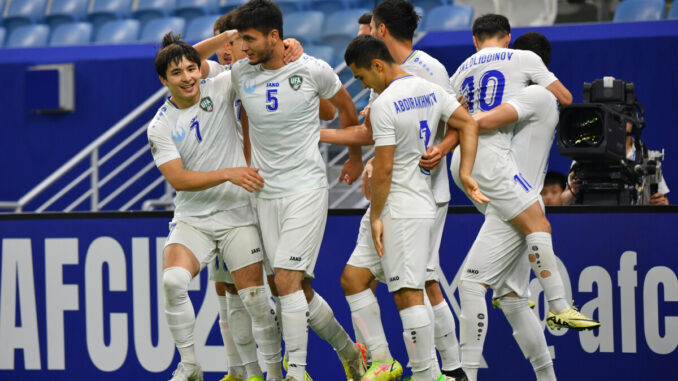
Wednesday marks a historic point for Uzbek football, as the national team kick-off in their very first appearance at the Olympic Games.
While for many, Olympic football is deemed a secondary competition, an afterthought perhaps, for Uzbekistan it offers validation of their progress.
In being able to shrug off their Soviet shadow and multiple near misses, the coming weeks begins the journey to what most hope will see them replicate qualification to their first FIFA World Cup in two years’ time, and vindication that their potential may soon be realised.
Progress to this point has been driven by an up-and-coming generation brimming with natural ability, yet hasn’t entirely been without design.
The Uzbek Football Association (UFA) have resolutely focused on youth development over the last five years, with the 2024 Olympics being the primary objective. Aside from the vision and emphasis put forward by UFA president Abdusalom Azizov, it’s in the form of the Olympic team’s coach, former Uzbek international football Timur Kapadze, where the delivery has materialised.
It’s by no surprise that the national legend has transitioned so effortlessly into management, if largely, to this point, off the grid, assembling arguably the best youth generation Uzbekistan has ever seen.
While admittedly more comfortable away from the media spotlight, Kapadze’s merits are finally due their public airing they truly deserve, as the coming weeks in Paris prepare to showcase the future of Uzbek football.
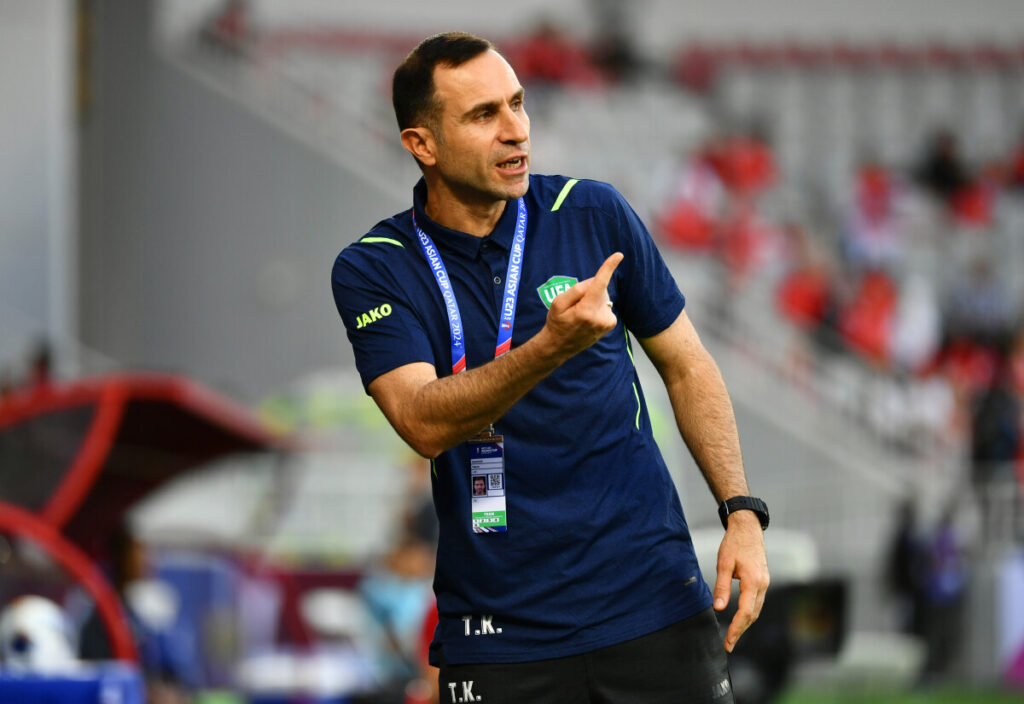
The modest wolf
A legendary presence of the national team since the turn of the century, Timur Kapadze amassed over a century of caps for the White Wolves during his playing days, accrued alongside a successful club career which took in domestic titles with Bunyodkor and Pakhtakor, together with short stints in South Korea, the United Arab Emirates and Kazakhstan.
While his stature on the field was undisputed back at home, his career trajectory following retirement took some time to shake out.
Quickly accelerated into coaching, he was first thrown the job of the Lokomotiv Tashkent youth team for a few unforgettable months, before being corralled into another short term contract teaching the next generation of coaches, from inside the UFA.
Neither were immediately suited for Kapadze. A man of modesty, he openly doubted his own ability at the time to inspire, purely on the name he’d established through playing.
It’s in his personality where Kapadze differs most from his peers in Uzbek football. In an all too self-concerned microcosm, Uzbek domestic football has often been more concerned about short-term reputation than long-term development.
A possible side effect of spilling out of the Soviet Union’s collapse in the 1990s, the newly-independent nation suddenly found itself full of big fish in a small national pond. This environment incentivised self-promotion, caution and fear, which spilled out onto the football field.
Granted, football managers aren’t usually provided much patience, but that feels amped up a notch in Uzbekistan. Such a low threshold for perceived failure led to a growing tendency to protect what one has rather than showing ambition, quickly blaming the surrounding factors rather than accepting what agency is available.
Kapadze understood this all too well over his 20-year playing career, and noticeably suffered from that immediate expectation to step up, as his father Tohir did before him.
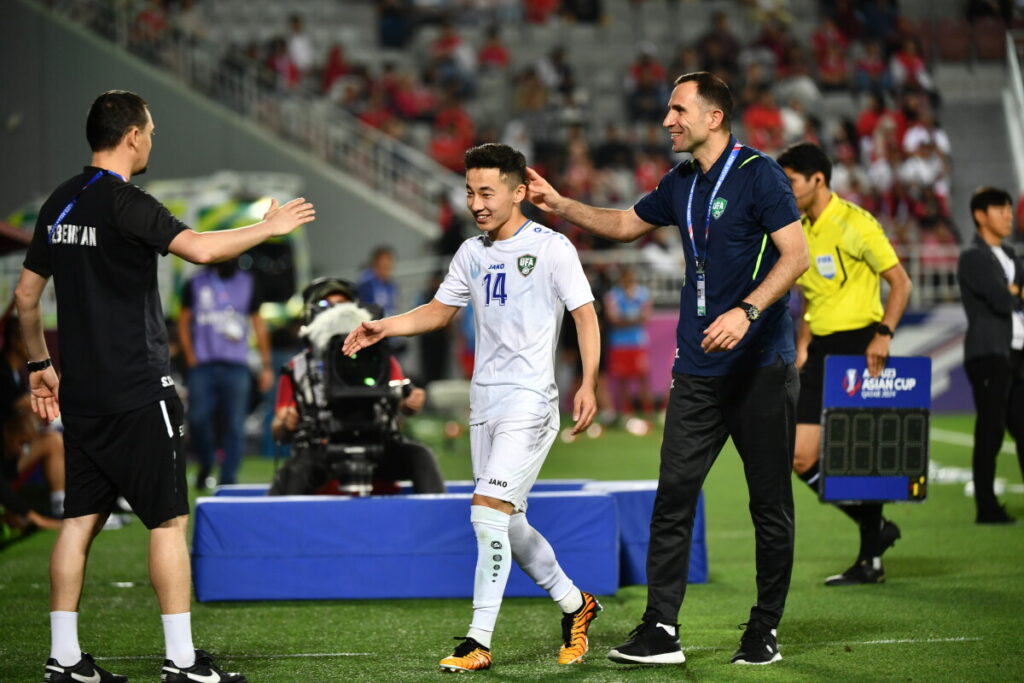
He after all, is a much meeker, thoughtful character than a typical post-Soviet general like his father. Evolving from his no-fuss, composed approach as a player, Kapadze’s approach to coaching was always likely to be more considered.
Lacking that brash, press conference bravado that is so apparent up and down the league to this day, made it a daunting prospect to transition into management. Instead, what was clear to those who worked with him, was his tactical awareness, collegiality and capability to plan for the long-term.
Drifting away from the pitch at this point, he quickly assimilated himself behind the scenes within the UFA, operating as a federation man – alongside other likeminded greats of modern Uzbek football such as Odil Akhmatov.
Granted a longer-term focus and little media scrutiny, the role appealed to him, but coaching kept reeling him back in.
In the wake of another failed attempt at qualifying for the World Cup in 2018, Kapadze was tossed an opportunity to return to coaching, as interim national team coach of the seniors. An opportunity which would prove pivotal in changing his and Uzbekistan’s direction for the years to come.
National Team comes calling
In his short six months in charge ahead of the lavish, and predictably doomed appointment of Hector Cuper the following autumn, Kapadze was given the keys to the company car and advised to make him and the team scarce.
Heading to Morocco in the March, and then as the world’s gaze gravitated on Russia in the run up to the World Cup, to South America in the June, the national team were literally taken to the other side of the world to dampen down scrutiny back home.
At this early stage, Kapadze understood the political and developmental benefits of building a new kind of harmony in the wake of disappointment.
Instead of selecting a first-choice squad – riddled with dissatisfaction and leggy after another frustrating campaign, Kapadze selected a much younger squad to head to Uruguay, made up predominantly of the side that had just won the AFC U23 Asian Cup in China a few months earlier, granting starring roles to the likes of Jaloliddin Masharipov, Odiljon Hamrobekov and Rustam Ashurmatov.
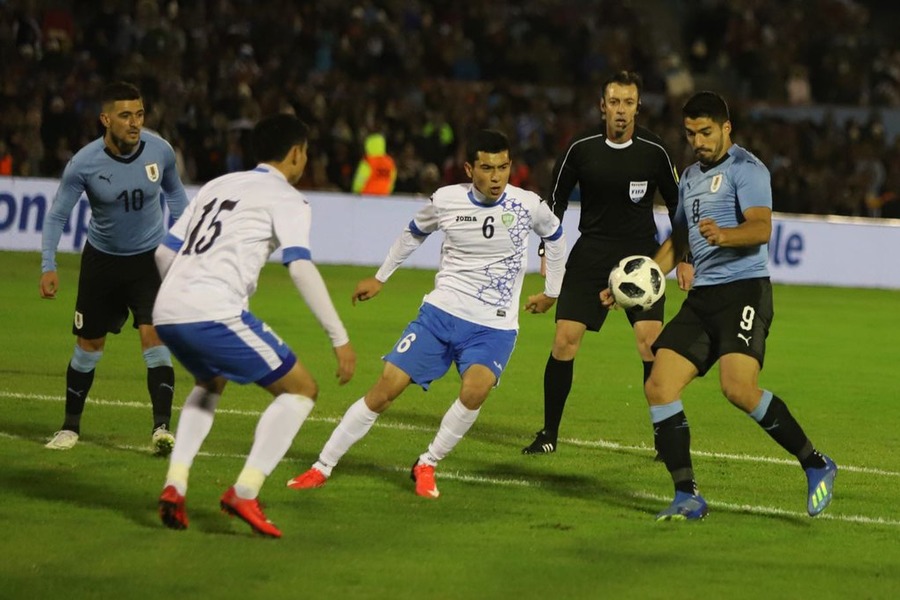
The experience – a footballing lesson in front of the indominable Estadio Centernario in Montevideo against the likes of Luis Suarez and Edison Cavani, was daring and different – a significant shift away from what Uzbek football was used to; away from the spotlight, but projecting a new way forward in being brave and trusting in this next generation. A candle was lit.
A realisation came at that point that if Uzbekistan was ever going to appear, let alone challenge on the world stage they’d have to make the most of the improving youth stocks coming through the system. It was a realisation Kapadze admitted at the time, that had barely crossed his mind whilst as a player, when he lined up alongside Rivaldo and Co. in an ageing, all-star Bunyodkor team that impressed in Asia over a decade ago.
Talent wise, Uzbekistan was developing better and smarter footballers year-on-year. In that, there was no doubt, competitive finalists at all age ranges in Asia, they even experienced international play at the U20 and U17 World Cups. The question mark now was, how to hone that raw talent into success in senior competition?
The difficulties were two-fold: 1) there was no solid pipeline for these young players to make it in Europe, and 2) the opportunities at home were becoming increasingly restricted.
Tashkent giants Pakhtakor dominated the Uzbek Super League, and in turn dominated their peers in acquiring the very best national talent.
Pooling the most prestigious young footballers from across the league restricted opportunities to gain minutes, stunting the growth of those who once sparkled in youth football, once they hit senior football.
The lack of young enthusiasm on the pitch, only gravitated to the traditional style of play; leading to more negativity and reliance on physical merits, all the while the rest of the world continued to evolve tactically to embrace energy and technique.
The UFA’s solution? A bold one. Inserting their successful youth national set up directly into the domestic league. Olympic FC was born.
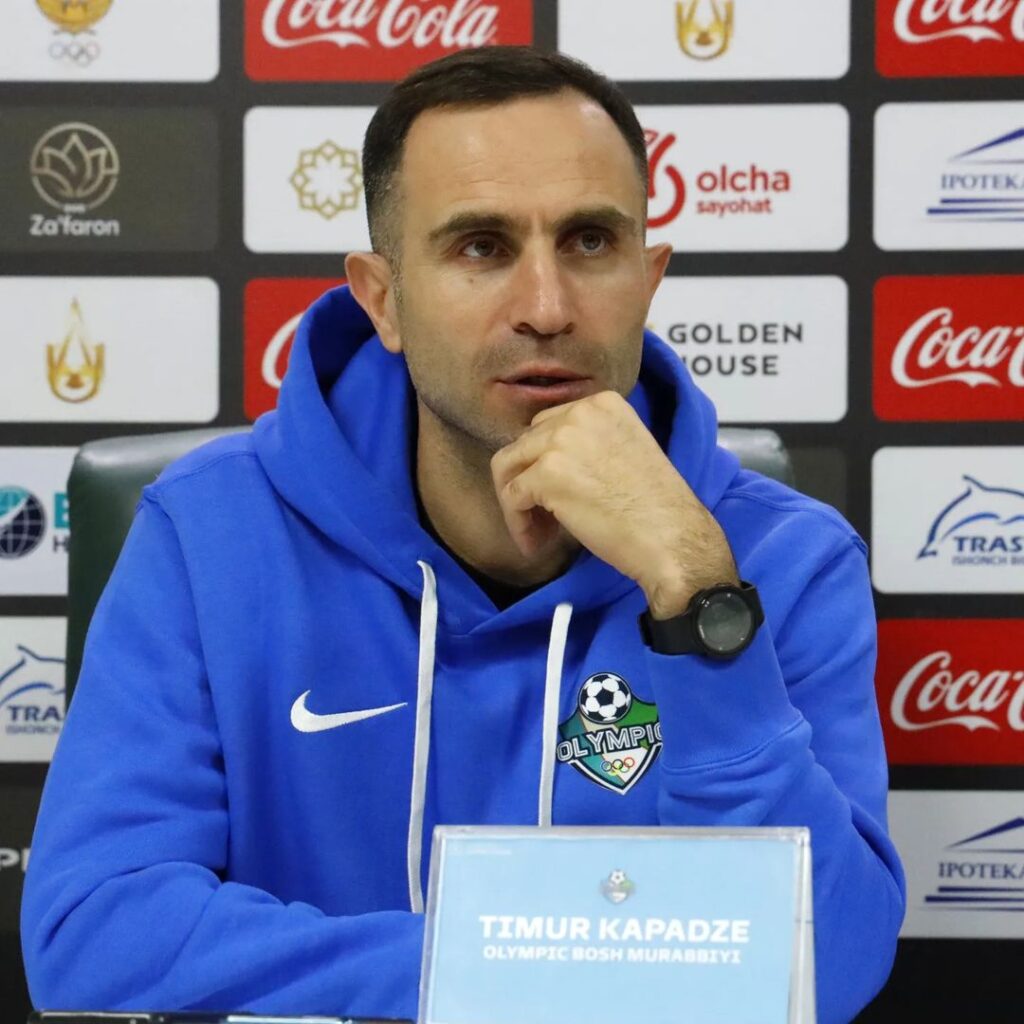
Olympic Dreams
A revolutionary approach in tackling an issue too-often told, of talent realisation. Rather than disseminating talent across the country, the UFA would support a hot house project centred n a makeshift club outfit operating in the domestic league.
While playing opportunity was the initial priority, the clear benefit over time came in the squad’s competitive maturity – the understanding of what was needed in those critical moments, which had dogged Uzbek teams of the past.
The question of who to direct this operation, for the UFA, was an easy one. Timur Kapadze, a coach guarded against short-termism, deterred by the prospect of a baying mob of supporter and media expectation, was the unarguable perfect fit for a club with long-term developmental priorities, no natural fans to appease and a single remit to build cohesion and solidity around young talent.
The Olympic project under Kapadze’s leadership has since been an immense success.
This Olympic generation (at the time in their late teens) clinched promotion from the second tier at the first time of asking, before packing a punch in their debut top flight campaign, providing a fearless, attacking and effective underdog opposition that no domestic giant wished to face.
Confidence spilled over to the national sphere with Uzbekistan making the final of both the last two U23 Asian Cups, the second of which guaranteed qualification to Paris, alongside an U20 Asian Cup triumph and a eye-opening U20 World Cup appearance.
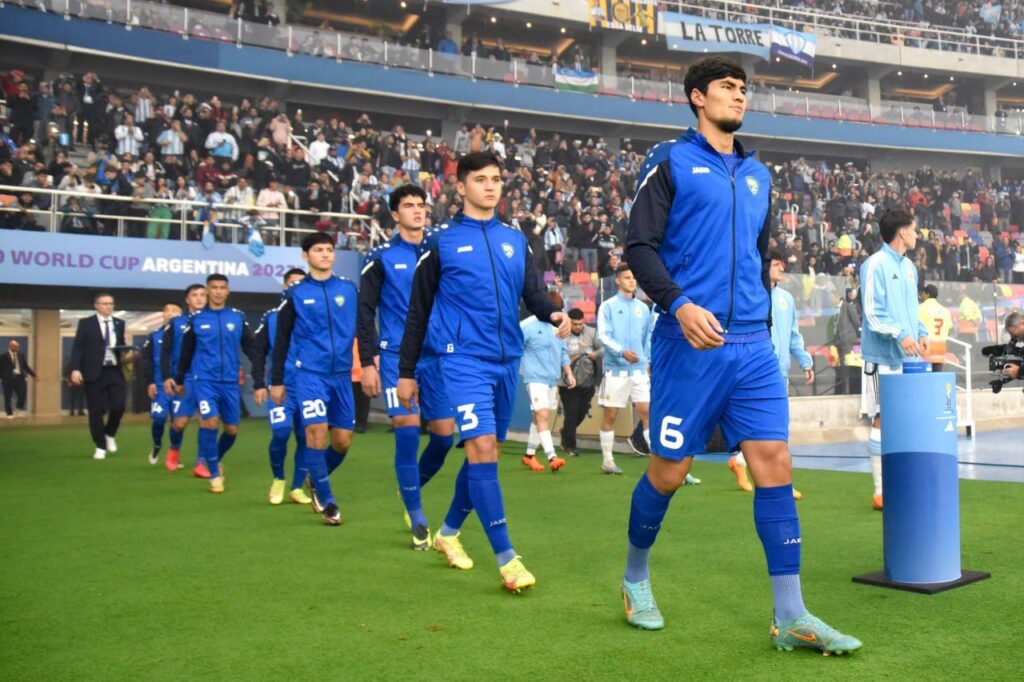
Success has been conjured with an Olympic FC spine, developed in Kapadze’s vision.
A collective effort, with little room for individuality or ego; the team is a true representation of the player their now coach once was.
For a man that has always shirked the limelight, he couldn’t hide his prominence in his team’s pinnacle moment. In his now viral pre-match rallying call ahead of their crunch Paris qualifier against Indonesia, Kapadze showed himself as the coach he’d become; confident in his ability, secure in those around him and adamant of the vision he’s instilled.
That vision permeates through to the playing group, no more than the graceful Abdurauf Buriev, who has rolled back the years for seasoned Uzbek fans, in replicating his boss’ image on the modern-day football field.
Kapadze’s captain at Olympic FC represents the symbolism and potential of the project and how the coach’s ideals have manifested on the pitch. His effortless poise, and harmony with those around him, has gelled the squad like no other before. Whoever starts now for this team understands the team’s requirements, making for a flexible and cohesive force.
Ahead of Paris, the integration of the more developed talents pushes the envelope on what the future holds. Through the likes of Eldor Shomurodov, Abbosbek Fayzullaev and Abdkhodir Khusanov, their talents can help push Kapadze’s approach further, rather than potentially unsettle it.
With success, of course, comes admiration. Kapadze is a sought-after figure, having reportedly turned down approaches from Uzbek Super League title chasing Navbahor over the last few weeks. While the clamour for his services is understandable, it undersells the conditions needed for this coach to thrive.
The symbolism seems almost too right then, for Kapadze to graduate at some point to the senior team, maybe as soon as 2026 if the current successful reign of Sreko Katanec is knocked off course.
As Kapadze knows, however, you’re only as good as your last match – especially in such a fickle environment as Uzbek football. With an event, so symbolic as the Olympics, success in way of merely illustrating they belong will initially be enough to prove the project a success – but can it be more?
The weeks ahead in Paris promise to be the first steps towards better things for Uzbek football, all under the watchful gaze of their modest wolf commander.
Listen to Episode 227 of The Asian Game Podcast as we preview the Paris 2024 Olympic Games



